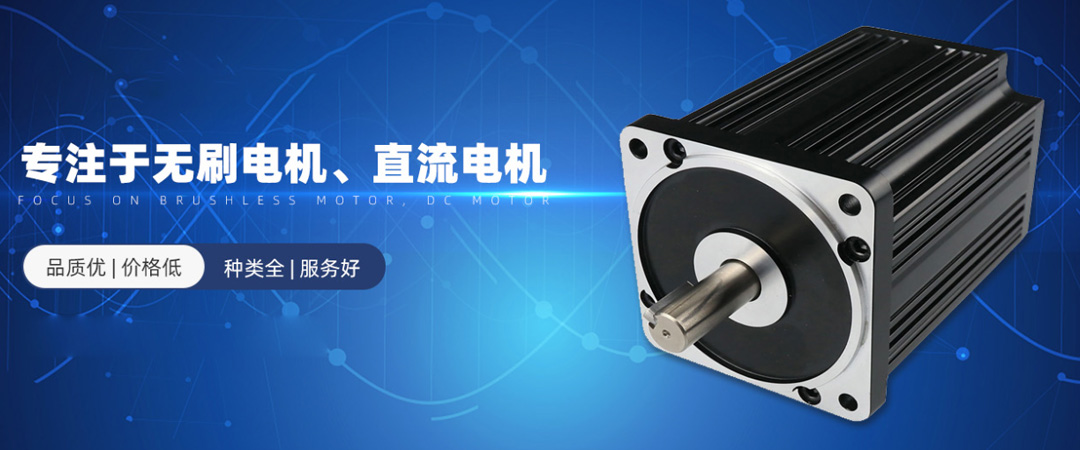Difference between brushless motor and servo motor
Brushless motors and servo motors are two common types of motors, with some differences in design, control, and application. Here are the main differences between them:
Brushless motors use brushless DC or brushless AC technology, where there are no traditional carbon brushes or commutators on the motor rotor, reducing friction and wear, and improving the efficiency and lifespan of the motor. Servo motor is a general term that typically refers to motors that can achieve high-precision position and speed control through feedback control systems. Servo motors can be DC servo motors, AC servo motors, etc., which are usually equipped with position encoders or other feedback devices.
The control of brushless motors usually involves the use of electronic commutation, adjusting the frequency and voltage of the power supply through a frequency converter or controller to control the speed and direction of the motor. The servo motor adopts a closed-loop control system, which controls the position, speed, and torque of the motor through real-time feedback signals. This enables servo motors to achieve higher precision and response performance.
Brushless motors are widely used in applications that require high power density, high speed, and low inertia, such as aircraft, power tools, unmanned vehicles, etc. Servo motors are commonly used in applications that require high-precision position and speed control, such as industrial automation, robotics, CNC machine tools, 3D printers, etc.
Brushless motors have excellent dynamic performance and can achieve rapid acceleration and deceleration in a short period of time. The closed-loop control of servo motors enables them to achieve higher accuracy and stability, but in some applications, the response speed may be slightly slower than that of brushless motors.
Brushless motors are relatively simple, usually priced lower, and suitable for some cost sensitive applications. The control system of servo motors is more complex and expensive, but it can provide higher control accuracy and performance.
Overall, brushless motors and servo motors have differences in application, control, and performance. Choosing the appropriate motor type depends on your application requirements, including factors such as control accuracy, dynamic performance, and budget.
Editor: ZiYu
Brushless motors use brushless DC or brushless AC technology, where there are no traditional carbon brushes or commutators on the motor rotor, reducing friction and wear, and improving the efficiency and lifespan of the motor. Servo motor is a general term that typically refers to motors that can achieve high-precision position and speed control through feedback control systems. Servo motors can be DC servo motors, AC servo motors, etc., which are usually equipped with position encoders or other feedback devices.
The control of brushless motors usually involves the use of electronic commutation, adjusting the frequency and voltage of the power supply through a frequency converter or controller to control the speed and direction of the motor. The servo motor adopts a closed-loop control system, which controls the position, speed, and torque of the motor through real-time feedback signals. This enables servo motors to achieve higher precision and response performance.
Brushless motors are widely used in applications that require high power density, high speed, and low inertia, such as aircraft, power tools, unmanned vehicles, etc. Servo motors are commonly used in applications that require high-precision position and speed control, such as industrial automation, robotics, CNC machine tools, 3D printers, etc.
Brushless motors have excellent dynamic performance and can achieve rapid acceleration and deceleration in a short period of time. The closed-loop control of servo motors enables them to achieve higher accuracy and stability, but in some applications, the response speed may be slightly slower than that of brushless motors.
Brushless motors are relatively simple, usually priced lower, and suitable for some cost sensitive applications. The control system of servo motors is more complex and expensive, but it can provide higher control accuracy and performance.
Overall, brushless motors and servo motors have differences in application, control, and performance. Choosing the appropriate motor type depends on your application requirements, including factors such as control accuracy, dynamic performance, and budget.
Editor: ZiYu



